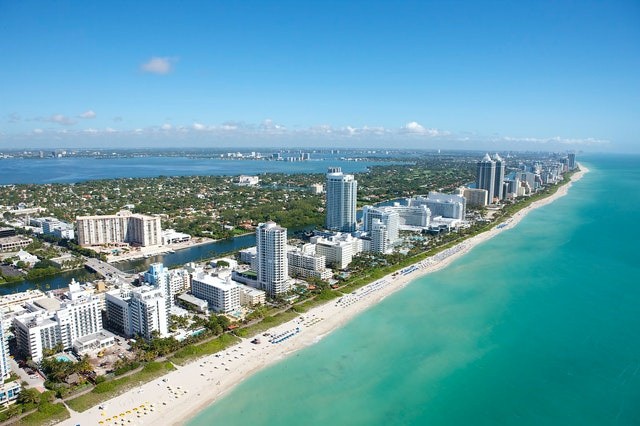
Miami recently ranked as the city with the highest risk of facing a housing market bubble. It was also listed as the city with the most overvalued housing market worldwide.
That is according to a report from UBS, a Switzerland-based global investment bank company. The firm's index analyzed income-adjust property values, rental yield indicators, the ratio of mortgage debt relative to economic output, construction activity as a proportion of GDP, and home price ratios compared to the rest of the country.
Each city analyzed was given a score. Those with scores above 1.0 were considered at an elevated risk for a housing market "bubble" while those above 1.5 were at high risk.
How Did Miami Score?
The firm found only six cities worldwide with scores above 1.0, down from 16 cities last year. Miami topped that list with a bubble risk score of 1.79. In comparison, the risk score in 2023 was 1.38.
The city has seen its price growth surge after the COVID-19 pandemic when demand rose, and supplies in the housing market struggled to keep up. The median sale price of a typical home in Miami is now $600,000. That is up 8.6% year-over-year compared to August 2023, per Redfin data.
A housing bubble is an economic condition that happens when there is a rapid increase in the prices of real estate properties, often to unsustainable levels and significantly above their intrinsic value. When a bubble pops, it can cause property values to drop suddenly. It can also lead to foreclosures and economic recession.
Other Cities at Risk of a Housing Bubble
Apart from Miami, here are the other cities the UBS report found at high risk of a housing bubble:
Tokyo, Japan
UBS Bubble Risk Score: 1.67
Risk Score in 2023: 1.65
Zurich, Switzerland
UBS Bubble Risk Score: 1.51
Risk Score in 2023: 1.71
Los Angeles, California
UBS Bubble Risk Score: 1.17
Risk Score in 2023: 1.03
Toronto, Canada
UBS Bubble Risk Score: 1.03
Risk Score in 2023: 1.21
Geneva, Switzerland
UBS Bubble Risk Score: 1
Risk Score in 2023: 1.13



